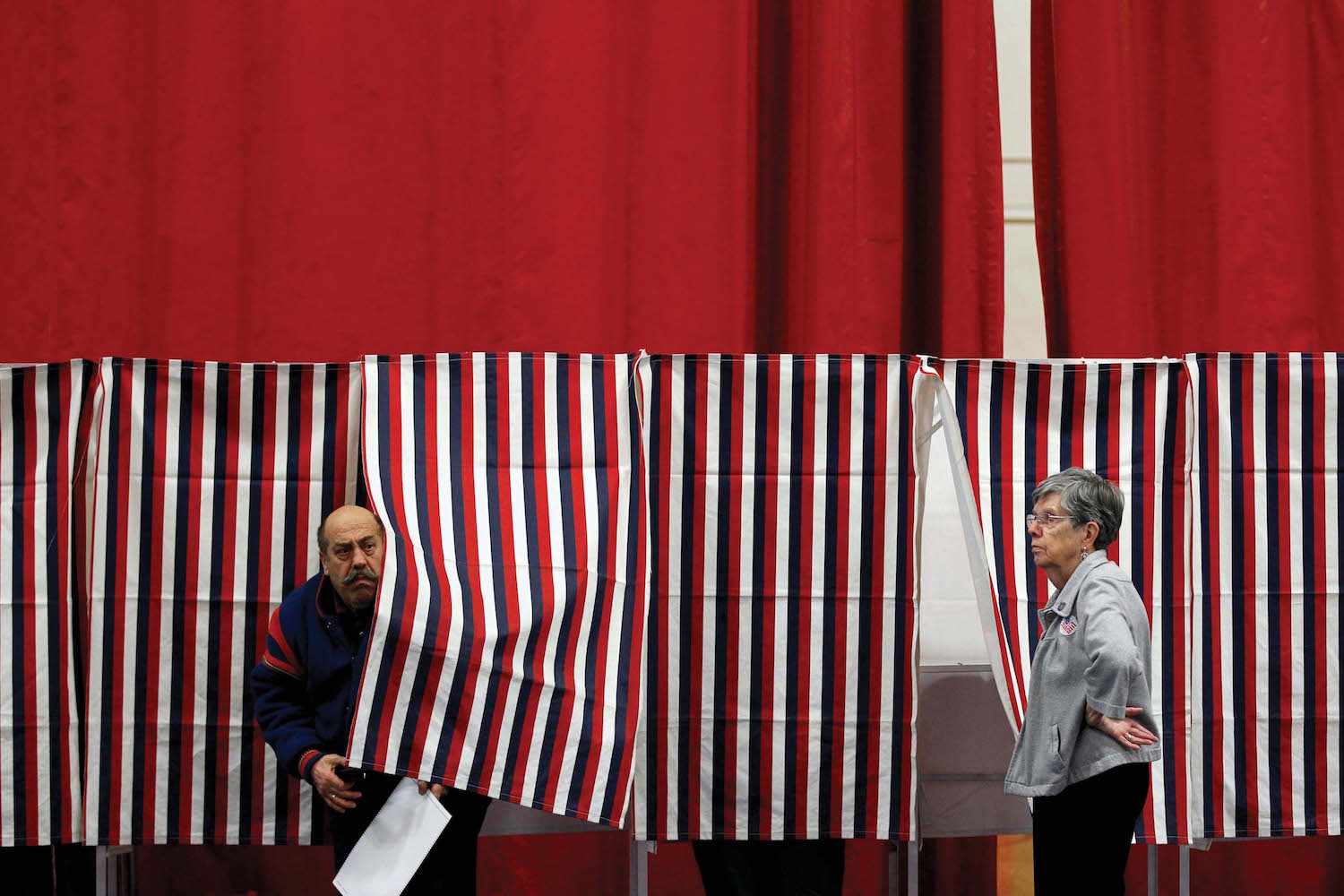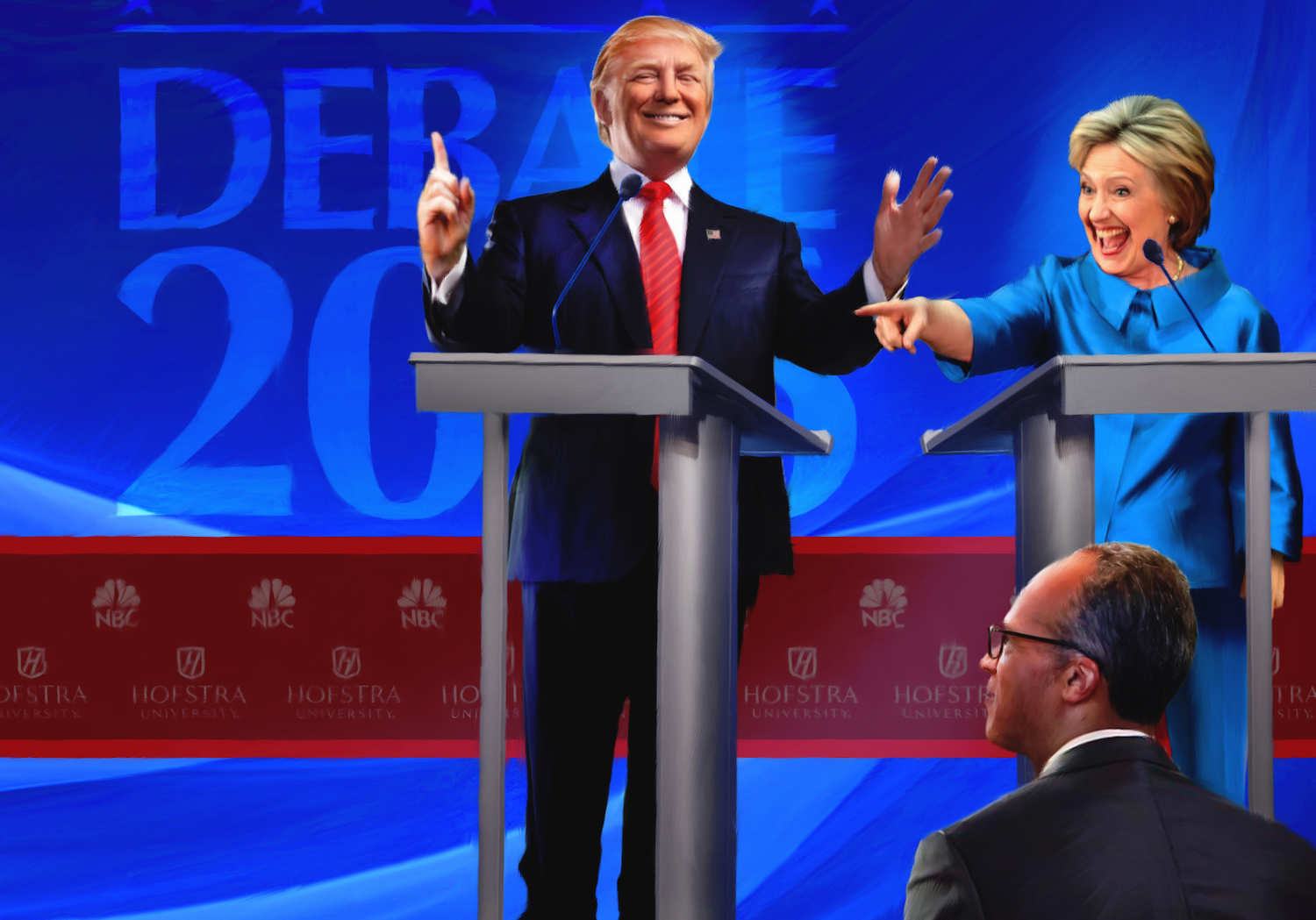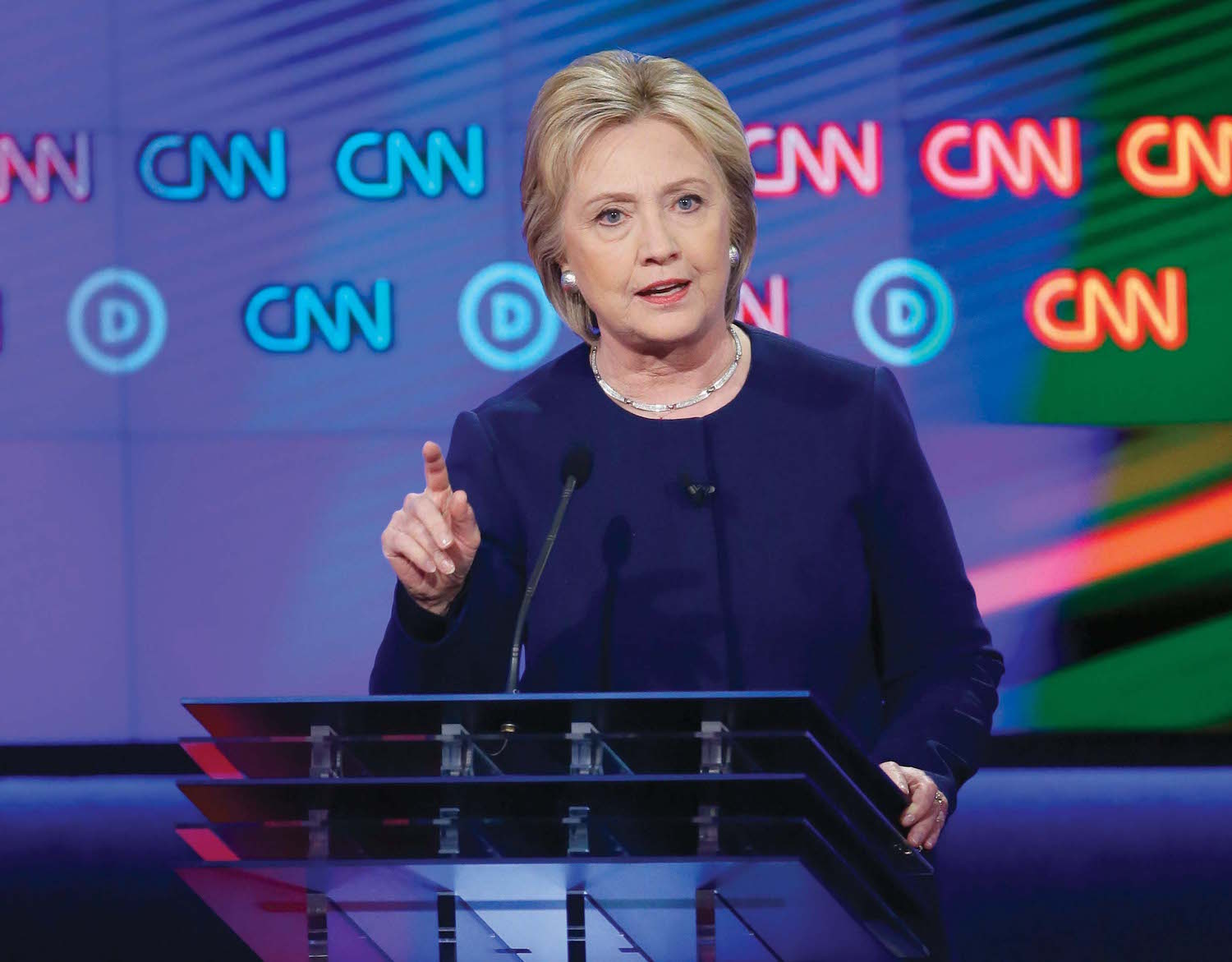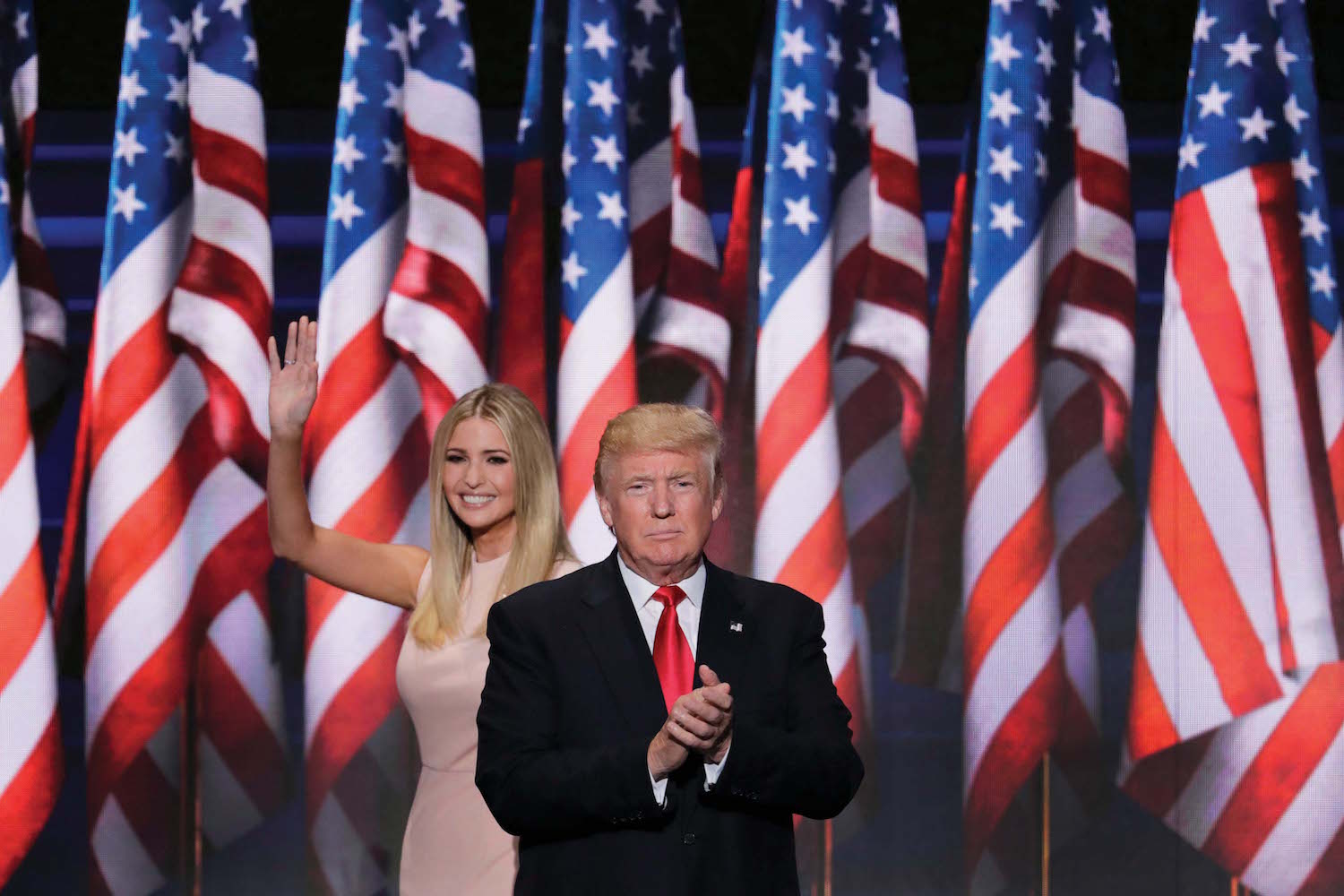When Hillary Clinton and Donald Trump meet on the debate stage for the first time in late September, it could be their last shot at swinging the race in their direction before November.
“The first debate could draw 100 million viewers,” said Republican strategist Ford O’Connell. “Perceptions of the candidates have hardened, but still there might be 40 million who form their perceptions for the first time.”
“These debates will probably be the most-watched presidential debates in history,” said Brett O’Donnell, a Republican communications professional who helped the Bush-Cheney campaign with debate preparation in 2004 and advised Mitt Romney during the 2012 primary debates.
“While you can’t win an election in a debate, you can certainly lose an election in one.”
Clinton’s Democratic convention bounce has subsided and some of Trump’s self-inflicted wounds appear to have healed. Trump has taken the lead in Ohio, Florida and Iowa.
Clinton’s once-formidable national lead has shrunk to just 1.8 points in a two-way race and 1.1 points when Libertarian Gary Johnson and Green Party nominee Jill Stein are included, according to the latest RealClearPolitics average.
This is a rare debate where the voters do not like either candidate. Both Trump and Clinton have net negative popularity ratings, something that has been true throughout the 2016 campaign. A September Quinnipiac poll found that an identical 57 percent viewed each of them unfavorably.
“This is like a contest between two different brands of dog food that your dog would probably want to throw up,” said a Washington Democrat who supports Clinton.
There is a lot riding on the debates for both candidates. “Each of them has a little different task,” O’Donnell said. “The knock on him is that he doesn’t know policy. He has to convince people that he is competent enough for the presidency and can do the job. She has to convince people she is trustworthy enough for the presidency.”
In addition to having different needs, Trump and Clinton go into the debates with different strengths and weaknesses. Neither is a champion debater, yet both have done well in the format in the past.
Clinton’s mastery of policy details is superior to Trump’s, but he is a reality TV star with a flair for the dramatic and an even longer history of media interviews than the former secretary of state and first lady.
“I have done well in the debates,” Trump said of his encounters with the other candidates for the Republican presidential nomination this year. “Every single poll has said I have won every debate.”

This is a rare debate where the voters do not like either candidate. Both Trump and Clinton have net negative popularity ratings, something that has been true throughout the 2016 campaign. (AP Photo)
But some of those debates included as many as 11 candidates on the stage. It was easier for Trump to stand out when he wanted to and also to recede into the background when the subject matter was unfavorable to him.
Trump won’t be able to do that against Clinton. The moderators will be under pressure to fact-check his claims and challenge him on details. The debates will almost certainly be one-on-one. While there is still an outside chance Johnson will meet the presidential debate commission’s 15 percent polling threshold to appear onstage, he has yet to hit the mark and was ruled out for the first debate in New York.
He’s unlikely to get in any other way because neither Trump nor Clinton has an incentive to cut a deal to include him. Johnson is pulling younger voters and independents from Clinton and could take soft Republicans from Trump, who he is more likely to attack if he gets into the debates.
At the same time, Trump’s experience from the Republican primaries will confer some benefits. While his opponents were initially reluctant to attack him, he faced stiffer resistance than Clinton did sharing the stage with Martin O’Malley and Lincoln Chafee.
Her main challenger, Bernie Sanders, did not sharply criticize her until late in the process, going so far as to say he was sick of hearing about Clinton’s “damn emails.”
Clinton will have no such luck with Trump, who has called her family foundation a “criminal enterprise,” alleged that she and her husband used the State Department as their “personal hedge fund” and called her emails “a bigger scandal than Watergate ever was.”
“He has had better highs and terrible lows,” O’Donnell said. “She really wasn’t tested in the primaries because Bernie Sanders wasn’t that great of a debater. She was last really tested in the debates against then-Sen. Obama and she didn’t really come off that well.”
The challenge for Trump will be not to overdo it. Speaking in Flint, Mich., he was chastised by a local pastor for being relentlessly negative against Clinton. While the debates are where criticism and negativity are more appropriate, if he is seen as too harsh he could do as much to reinforce voters’ unfavorable impressions of him as his opponent.
One negative that an overly aggressive Trump could accentuate is his problems with women. Trump is unpopular with female voters, many of whom perceive him as a sexist.
Fox News’ Megyn Kelly greeted Trump at his first primary debate with a litany of unflattering comments he had made about women, touching off a feud that kept him out of the last debate before the Iowa caucuses (potentially costing him the state) and extended for weeks.
Now Trump will be alone on the stage with a woman vying to make history. “She’s playing the woman card,” he has said often in the past, leading to Clinton’s patented response: “Deal me in.” Trump may find that he doesn’t want to play that hand in the debates.
Rick Lazio is a cautionary tale for Trump. The moderate New York Republican was Clinton’s general election opponent in the 2000 race to succeed retiring Sen. Daniel Patrick Moynihan, D-N.Y.

Trump and Clinton go into the debates with different strengths and weaknesses. Neither is a champion debater, yet both have done well in the format in the past. (AP Photo)
Buoyed by some favorable poll numbers, Lazio strode over to Clinton’s podium, thrust a piece of paper at her and demanded she sign a pledge not to use soft money in the campaign.
Lazio was widely viewed as bullying and condescending for getting in Clinton’s personal space. (She was also first lady at the time.) The Washington Post includes it alongside Dan Quayle’s John F. Kennedy flub and Gerald Ford’s claim there was no Soviet domination of Eastern Europe on its list of the “worst debate moments ever.”
The left-wing magazine Mother Jones reminisced about the episode under the headline “Republicans blew their chance to end Hillary Clinton’s career 15 years ago.”
It’s easy to see the often boorish Trump making a similar mistake. Clinton’s supporters are eager to pounce on him for saying or doing something sexist. Clinton has gotten good at getting under his skin.
Surrogates have attacked everything from Trump’s intelligence to his hand size and waistline in an attempt to draw him into the ill-tempered fights that have so often thrown him badly off-message. “He’s easily distracted,” O’Donnell said.
But Trump has been deferential to women, too. Daughter Ivanka Trump is a trusted adviser. Campaign manager Kellyanne Conway has had far more success honing Trump’s communications strategy than Corey Lewandowski or Paul Manafort.
Pressed on an unkind comment he had made about Carly Fiorina’s physical appearance, Trump uncharacteristically wilted in her presence.
Observers acknowledge it is a tough balance. “He can’t lose his confidence, because that’s what got him here in the first place,” a Republican consultant said. “But it is easy to overdo it, and he has to watch that.”
Clinton has her own problems. She can be stiff and robotic. “You’re likeable enough, Hillary,” is President Obama’s famous debate jibe describing a perception that has plagued her throughout her political career.
Her husband and Obama are both political naturals in their own way. So is Trump. She is not. “She has to get on a positive message, and I don’t mean an attacking message,” O’Donnell said.
While Clinton and the Democrats eventually relented, the Democratic National Committee initially tried to shield her from debates even with opponents like Sanders. Originally there were only going to be six debates, many of them scheduled at inconvenient times designed to minimize viewership.
The dynamics of the Democratic race were different, since she was the heavy front-runner who only had things to lose from any missteps. It’s in keeping with the current practice of limiting her press availability.

The Lauer-moderated event offered a few more glimpses into the likely debate dynamics. Clinton has cast votes and served as secretary of state while Trump has no real record to defend. (AP Photo)
The people around Clinton do behave as if they think she benefits from prolonged exposure to the electorate. In the Commander in Chief Forum, the only real preview of the debates we will get, she gave long, ponderous answers and seemed defensive.
Trump failed to match her detailed knowledge but spoke better in broad themes and pushed back more skillfully against hostile questions.
That event did reveal one likely Clinton tactic: expect the candidate and her supporters to work the refs. Forum moderator Matt Lauer came under fierce criticism from Democrats for letting Trump skate on certain questions, such as not pushing back on his claim that he opposed the Iraq War before it started, while being tough on Clinton.
“He is better prepared to out-perform her,” O’Donnell said. “She is better prepared to out-argue him. But this hasn’t been a policy election.”
“The message to moderators of future debates was clear: Go easy on Hillary, or they will come after you,” wrote conservative columnist Derek Hunter. Moderator Lester Holt has surely been put on notice.
The Lauer-moderated event offered a few more glimpses into the likely debate dynamics. Trump has made many controversial statements to the media, but he has no real record to defend. Clinton on the other hand has cast votes, taken positions on public policy issues for decades and served as secretary of state.
These are all assets when arguing she is better qualified to be commander in chief, but liabilities when that record contains things that are as polarizing as Trump’s comments.
When she was challenged on her vote to authorize the Iraq War or pushing for military intervention in Libya, Clinton was forced to compare that record to Trump, telling Howard Stern, “Yeah, I guess so,” when it came to supporting Iraq and mentioning something Trump had said in a YouTube video about Libya.
Trump, on the other hand, has a certain degree of flexibility because he isn’t pinned down by any governing he has done in the past.
Clinton has stood at the debate podium for 90 minutes and taken every question thrown at her more effectively than Trump ever has. But that kind of technical mastery isn’t always enough to win.
Ask Al Gore how grilling George W. Bush about the Dingell-Norwood bill turned out. Debates are often defined by soundbites and big moments, an area where Trump has an advantage.
Clinton didn’t lose a single debate during the Democratic primaries, while Trump’s performances were up and down. But Trump had a series of memorable exchanges.
There was his refusal to apologize to Jeb Bush, and later his denunciation of the Bush family’s legacy and the Iraq War. When Marco Rubio said Trump was the only candidate on the stage who had hired foreign workers, Trump shot back that he was the only one who had hired anybody.

Perhaps his biggest moment was against Ted Cruz, a gifted orator and highly skilled debater. Cruz chastised Trump’s “New York values,” suggesting the businessman shared his city’s social liberalism rather than the values of the conservative base. Trump promptly let him have it:
“New York is a great place. It’s got great people. It’s got loving people, wonderful people. When the World Trade Center came down, I saw something that no place on Earth could have handled more beautifully, more humanely than New York … Thousands of people killed and the cleanup started the next day … I was down there. And I’ve never seen anything like it.
“And the people in New York fought and fought and fought, and we saw more death and even the smell of death; nobody understood it. And it was with us for months: the smell, the air. And we rebuilt downtown Manhattan, and everybody in the world watched, and everybody in the world loved New York and loved New Yorkers, and I have to tell you, that was a very insulting statement that Ted made.”
That is as big a rhetorical smackdown as Ronald Reagan’s quip about Walter Mondale’s youth and inexperience or Lloyd Bentsen’s crack about Quayle not being Jack Kennedy. It is easily as memorable as anything Clinton has ever said.
So she will have to work to avoid a situation where she spends over an hour methodically and effectively building herself up as the better commander in chief only to see it all wiped out by a single highlight reel moment from Trump.
Fairly or not, the expectations are higher for Clinton. Some of this is the media’s doing. Trump has perversely benefited from much of the political press still seeing him as an unlikely president at this late date. But some of this is Clinton’s own doing.
She has so relentlessly argued that he is manifestly unqualified and belittled his accomplishments in business that it is relatively easy for Trump to clear the bar that she has set for him.
“They have gone so scorched earth on him that they have moved past him,” O’Connell said.
At the same time, Trump is still behind, however narrowly. He still has wary voters questioning whether he is up to the job or if he really even wants it. Therefore, he needs these debates more. Clinton can afford to be cautious and risk-averse while Trump can’t, even as he needs to avoid looking like a hot head or demagogue.
If the rumors that Trump isn’t going to prepare for the debates are true, several political observers said it would be a mistake. You never know how you are going to respond to attacks on your feet without practice. One compared it to a football team talking about the plays they are going to run without ever practicing them.
What makes these debates especially consequential is that beyond policy differences, they could answer basic questions the electorate has about the candidates. Simply by standing for 90 minutes with no commercial breaks, Clinton can calm some concerns about her health. By turning in solid debate performances, Trump can soothe jitters about his temperament.
“Trump is like a comedian who can tell one or two jokes well and then gets sent out to perform for an hour,” O’Donnell said. “Clinton has more material but doesn’t tell the joke very well.”
After the debates, one of them will be a step closer to the White House.

